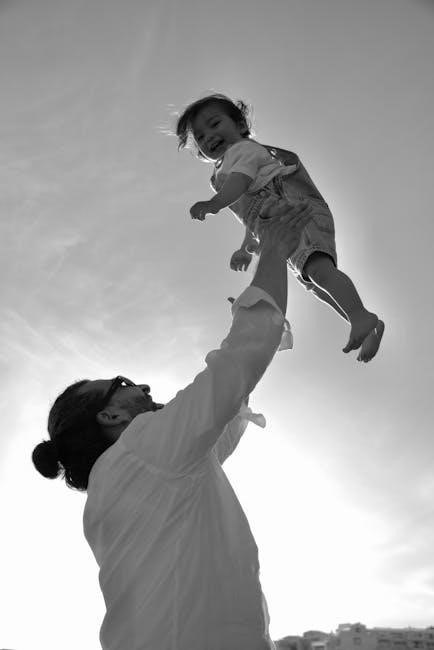the play that goes wrong pdf
The Play That Goes Wrong is a hilarious comedy by Henry Lewis‚ Jonathan Sayer‚ and Henry Shields. It follows the disastrous production of a murder mystery play by the inept Cornley Polytechnic Drama Society. Originally titled The Murder Before Christmas‚ it premiered in 2012 at The Old Red Lion Theatre in London. The play’s chaotic execution and physical humor have made it a global phenomenon‚ with adaptations and a high school edition available for educational use.
Overview of the Play
The Play That Goes Wrong is a comedic murder mystery that follows the Cornley Polytechnic Drama Society’s disastrous attempt to stage a 1920s whodunit. The play-within-a-play‚ titled Murder at Haversham Manor‚ quickly unravels as the amateur cast and crew face endless mishaps‚ from collapsing sets to misplaced props. The story centers on the suspicious death of Charles Haversham‚ with suspects including his fiancée Florence and his friend Thomas. Despite their best efforts‚ the production spirals into chaos‚ blending physical comedy‚ slapstick‚ and witty dialogue. Originally titled The Murder Before Christmas‚ the play premiered in 2012 and has since become a global hit‚ adapted into various versions‚ including a high school edition. Its unique blend of humor and theatrical mayhem has captivated audiences worldwide‚ making it a modern farce classic.
Historical Context and Origins
The Play That Goes Wrong originated as The Murder Before Christmas‚ a one-act play first performed by Mischief Theatre at The Old Red Lion Theatre in London on December 4‚ 2012. The company‚ co-founded by Henry Lewis‚ Jonathan Sayer‚ and Henry Shields‚ aimed to create a comedy that parodied amateur theater productions. Drawing inspiration from classic farce and physical comedy‚ the play evolved into a full-length production‚ retaining its original premise of a disastrous murder mystery performance. Its success led to a West End transfer and international acclaim‚ solidifying its place as a modern comedic masterpiece. The original cast included the playwrights themselves‚ adding a layer of authenticity to the chaos on stage.
Significance in Modern Theatre
The Play That Goes Wrong has become a landmark in contemporary theatre‚ redefining comedy and farce. Originating as The Murder Before Christmas in 2012‚ it evolved into a full-length production‚ captivating global audiences with its chaotic charm. Its success lies in its fresh take on classic physical comedy‚ blending slapstick with witty dialogue. The play’s ability to engage audiences through shared laughter and relatable mishaps has made it a modern classic. By parodying amateur theatre‚ it celebrates the spirit of live performance‚ even in its imperfect forms. Its impact extends beyond entertainment‚ inspiring adaptations like Peter Pan Goes Wrong and a high school edition‚ ensuring its legacy in both professional and educational theatre. This play’s enduring popularity highlights its significance in revitalizing comedic storytelling for modern audiences.
The Plot and Characters
The Play That Goes Wrong follows the Cornley Polytechnic Drama Society’s disastrous attempt to stage a 1920s murder mystery. The story centers on the murder of Charles Haversham‚ with suspects like Florence Colleymoore‚ whose secret could implicate her‚ and Cecil Haversham‚ whose dim-wittedness adds to the chaos. The play-within-a-play format showcases the society’s incompetence‚ as actors struggle with their roles and the set collapses around them. Key characters include Chris Bean‚ the society’s hapless leader‚ and Sandra Wilkinson‚ whose overacting highlights the group’s amateurish charm. The plot’s mishaps and misunderstandings create a hilarious‚ unpredictable ride.
Setting and Premise
The Play That Goes Wrong is set during the opening night of the Cornley Polytechnic Drama Society’s production of a 1920s murder mystery‚ Murder at Haversham Manor. The story unfolds in the fictional Haversham Manor‚ where the wealthy Charles Haversham has been found dead. The play-within-a-play format creates a unique dynamic‚ as the audience watches both the murder mystery and the chaotic attempts of the amateur actors to stage it. The society’s inexperience leads to a crumbling set‚ misplaced props‚ and actors struggling to keep the performance intact. The premise revolves around the investigation of Charles’s murder‚ with suspects like Florence Colleymoore and Cecil Haversham‚ while the drama society’s ineptitude turns the production into a hilarious disaster. The setting and premise blend perfectly to create a comedic masterpiece.
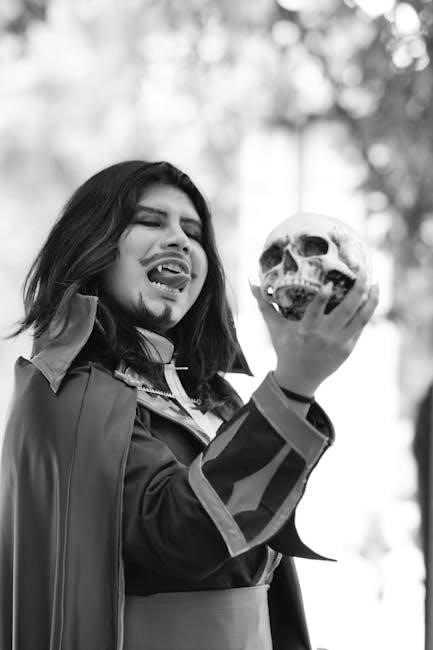
Main Characters and Their Roles
Chris Bean is the director and lead actor of the Cornley Polytechnic Drama Society‚ playing Inspector Carter. He is overconfident but inept‚ often struggling to maintain order. Jonathan Harris portrays Charles Haversham‚ the murder victim‚ whose death sets the story in motion. Sandra Wilkinson plays Florence Colleymoore‚ Charles’s fiancée‚ who harbors secrets. Dennis Tyde is the society’s technician‚ whose mishaps cause constant chaos. Florence Colleymoore is a key suspect‚ while Cecil Haversham‚ Charles’s brother‚ adds to the confusion with his dim-witted nature. These characters’ interactions and flaws drive the play’s comedic chaos‚ as their attempts to stage a murder mystery spiral out of control.
Key Plot Twists and Mishaps
The Play That Goes Wrong is packed with chaotic mishaps and unexpected twists. The story begins with the murder of Charles Haversham‚ which sparks a series of comedic misadventures. As the Cornley Polytechnic Drama Society attempts to solve the mystery‚ props malfunction‚ lines are forgotten‚ and the set collapses. A pivotal moment occurs when Florence Colleymoore’s secret is revealed‚ complicating the investigation. Meanwhile‚ Jonathan Harris becomes trapped in a backdrop‚ and Dennis Tyde’s technical failures escalate the chaos. The play’s climax features a frantic chase and a shocking revelation‚ leaving both the characters and the audience in disarray. These mishaps transform the production into a hilarious disaster‚ making the play’s chaos its greatest charm.
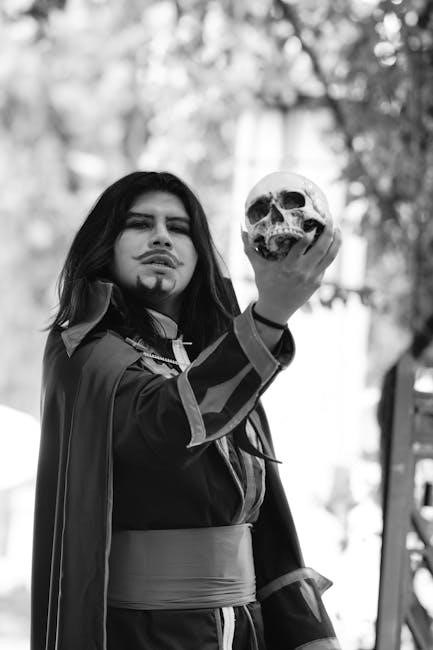
Themes and Style
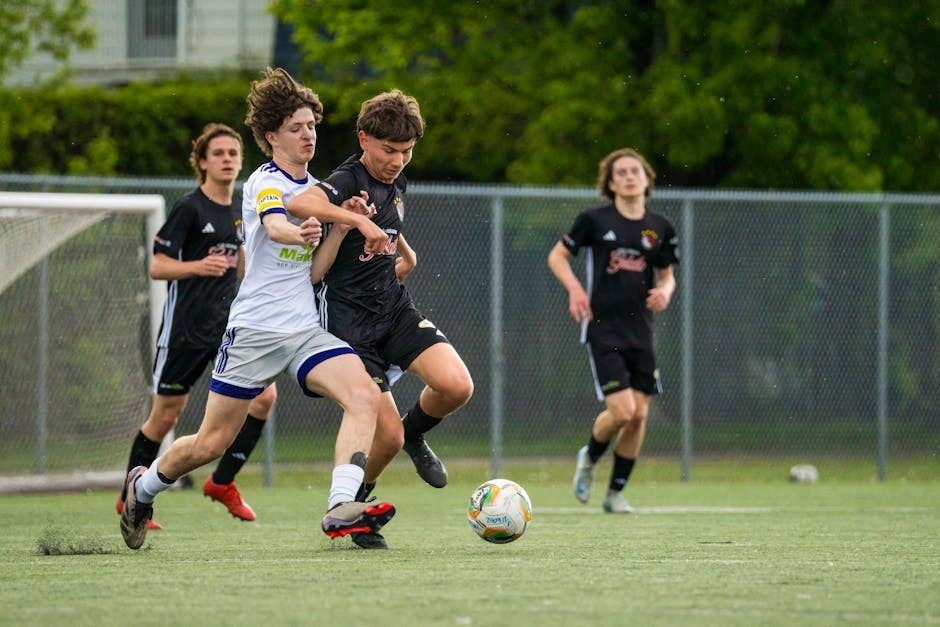
The Play That Goes Wrong masterfully blends farce and physical comedy with British absurdity‚ creating chaotic hilarity that engages audiences through mishaps and theatrical mayhem.
Comedy and Farce Elements
The Play That Goes Wrong excels in its use of comedy and farce‚ with a script brimming with witty dialogue‚ exaggerated characters‚ and absurd situations. The play’s humor stems from its chaotic execution‚ where everything that can go wrong does‚ creating a series of hilarious mishaps. Physical comedy and slapstick are central to the performance‚ with characters frequently tumbling‚ doors malfunctioning‚ and props failing spectacularly. The farcical elements are heightened by the amateurish efforts of the Cornley Polytechnic Drama Society‚ whose ineptitude turns a simple murder mystery into a disastrous spectacle. The play’s ability to balance clever wordplay with ridiculous physicality ensures non-stop laughter‚ making it a masterclass in comedic storytelling.
Physical Comedy and Slapstick
Physical comedy and slapstick are at the heart of The Play That Goes Wrong‚ with the production relying heavily on exaggerated mishaps and chaotic mayhem. The play’s humor is amplified by the Cornley Polytechnic Drama Society’s hapless attempts to stage a murder mystery‚ leading to constant physical gags. Characters tumble‚ doors break‚ and props fail spectacularly‚ creating a non-stop cascade of slapstick moments. The actors’ over-the-top reactions and the relentless barrage of mishaps keep the audience in stitches. This blend of physical humor and farcical timing ensures that the play’s comedic chaos is both unpredictable and endlessly entertaining‚ making it a standout example of modern slapstick theatre.
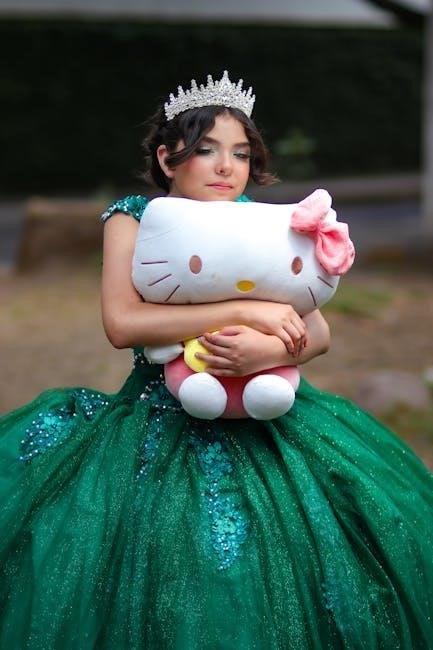
The Role of Audience Engagement
The Play That Goes Wrong thrives on audience engagement‚ breaking the fourth wall to involve spectators in its chaotic unfolding. The actors frequently address the audience directly‚ creating a unique connection that heightens the comedic experience. Physical gags and mishaps often spill into the audience space‚ making viewers feel like active participants. The audience’s reactions‚ whether laughter or gasps‚ become part of the performance‚ adding an unpredictable layer to the show. This interactive element ensures that no two performances are identical‚ fostering a dynamic and immersive theatre experience. The play’s success largely relies on its ability to engage the audience‚ making them complicit in the on-stage mayhem and amplifying the overall enjoyment.
Production and Reception
The Play That Goes Wrong debuted at The Old Red Lion Theatre in 2012‚ earning critical acclaim and launching its global success. Its original production showcased the Cornley Polytechnic Drama Society’s hapless attempts at staging a murder mystery‚ leading to widespread recognition and awards‚ including an Olivier Award. The play’s reception highlighted its innovative blend of physical comedy and audience interaction‚ solidifying its place in modern theatre history. The production’s success also paved the way for adaptations and international tours‚ further cementing its reputation as a groundbreaking comedic masterpiece. The play’s reception continues to grow as it entertains audiences worldwide.
Original Production and Reviews
The original production of The Play That Goes Wrong premiered at The Old Red Lion Theatre in London on December 4‚ 2012‚ under the title The Murder Before Christmas. Produced by Mischief Theatre‚ the play was initially a one-act performance featuring a cast that included Chris Bean as Inspector Carter. The production quickly gained attention for its chaotic execution and hilarious mishaps‚ which became its defining feature. Critics praised the play’s innovative blend of physical comedy and slapstick humor‚ with audiences delighting in the intentional errors and mishaps. The original production laid the groundwork for the play’s global success‚ showcasing its unique ability to transform theatrical disasters into entertaining spectacle. Its reception was overwhelmingly positive‚ setting the stage for its eventual adaptation into a full-length play and its rise to international acclaim.
Global Success and Adaptations
The Play That Goes Wrong has achieved global acclaim‚ with productions in the UK‚ US‚ Australia‚ and beyond. Its unique blend of physical comedy and chaotic storytelling resonated universally‚ making it a favorite across cultures. The play has spawned successful adaptations‚ including Peter Pan Goes Wrong and The Nativity Goes Wrong‚ solidifying its place in modern comedy theatre. Additionally‚ a high school edition of the script has been released‚ allowing educational institutions to perform the play‚ introducing it to younger audiences. This widespread adaptation and educational use highlight the play’s versatility and enduring appeal‚ ensuring its continued relevance in global theatre. Its success has cemented its status as a modern classic in comedic theatre‚ inspiring new adaptations and performances worldwide.
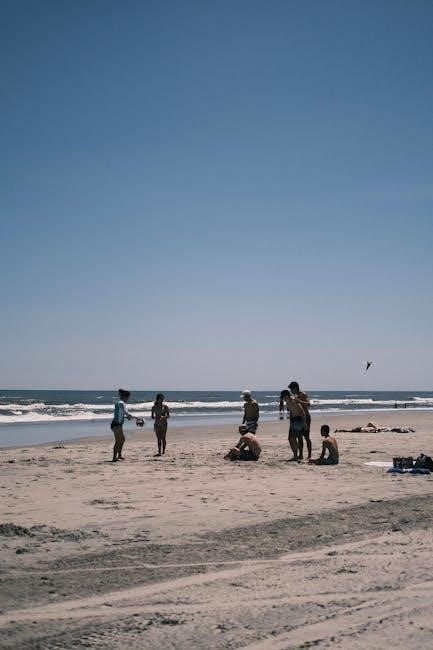
Awards and Critical Acclaim
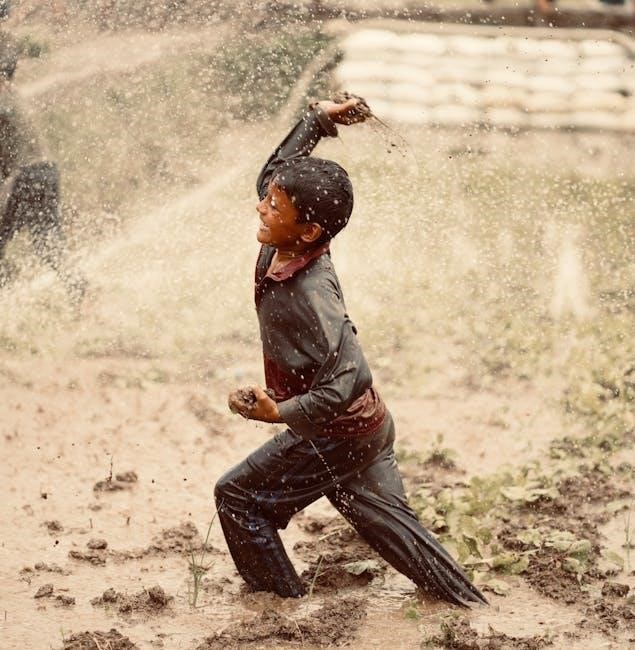
The Play That Goes Wrong has garnered significant recognition‚ winning the Olivier Award for Best New Comedy in 2014. Critics have praised its ingenious blend of physical comedy and witty dialogue‚ with many hailing it as a modern classic. Audiences worldwide have embraced its chaotic charm‚ leading to sold-out runs in the West End‚ Broadway‚ and beyond. The play’s success has solidified its reputation as a landmark production in contemporary theatre‚ celebrated for its ability to transform theatrical mishaps into uproarious entertainment. Its critical acclaim and widespread popularity have made it a standout in the world of comedy and farce‚ ensuring its enduring legacy in the theatrical landscape;

Script and Availability
The script of The Play That Goes Wrong is widely available as a PDF‚ including a high school edition‚ making it accessible for educational use and theatrical performances;
PDF Versions and Accessibility
The script of The Play That Goes Wrong is widely available in PDF format‚ making it easily accessible for theatrical groups‚ schools‚ and enthusiasts. The original one-act edition‚ along with the high school edition‚ can be downloaded from various online platforms. These versions are designed to be user-friendly‚ allowing readers to enjoy the play both on the page and in performance. The availability of digital copies has significantly contributed to the play’s global popularity‚ enabling schools and amateur theater groups to stage productions without logistical challenges. Additionally‚ the PDF format ensures that the script is readily accessible for educational purposes‚ fostering creativity and engagement among students and educators alike.

High School Edition and Educational Use
The high school edition of The Play That Goes Wrong has become a valuable resource for drama educators‚ offering a tailored version of the original script for younger audiences. This adaptation maintains the play’s signature humor and chaotic charm while ensuring suitability for high school performers and audiences. Many schools have embraced this edition‚ using it to teach theatrical techniques‚ teamwork‚ and creative problem-solving. The play’s relatable themes and comedic mishaps make it an engaging tool for fostering student engagement in the arts. Its availability in PDF format further enhances its accessibility‚ allowing schools to easily incorporate it into their drama curricula and stage productions.

The Play That Goes Wrong has cemented its place as a modern theatrical phenomenon‚ offering a unique blend of comedy‚ chaos‚ and audience engagement. Its relatable themes of ambition‚ mishap‚ and perseverance resonate widely‚ making it a favorite among diverse audiences. The play’s global success‚ including adaptations and educational editions‚ underscores its versatility and enduring appeal. By transforming theatrical disasters into entertainment‚ it challenges traditional norms and inspires new approaches to storytelling. As a testament to its impact‚ The Play That Goes Wrong continues to delight audiences and educate future generations of performers and playwrights‚ ensuring its legacy in the world of theatre for years to come.
